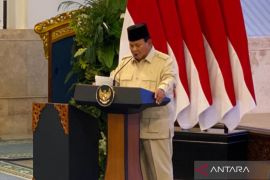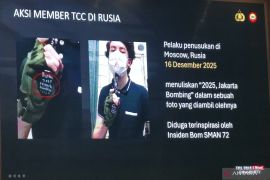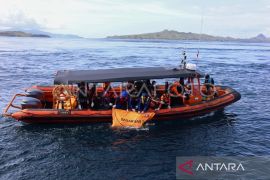Indonesian Permanent Representative to the United Nations in Geneva Dian Triansyah Djani made the remark as she led the Indonesian delegation to the COP-10 in Cartagena, Colombia, recently, First Secretary of the Indonesian Permanent Representative Office in Geneva Mohammad Kurniadi Koba said in an e-mailed statement to an ANTARA correspondent based in London on Sunday.
In the COP-10, parties to the Basel Convention adopted by consensus an omnibus decision proposed by Indonesia and Switzerland to encourage the enforcement of Ban Amendment to make the convention effective in banning the export of hazardous wastes from developed nations to developing countries, Dian said.
As a country consisting of more than 17 thousand islands, Indonesia attached significance to international cooperation banning the transboundary movements of hazardous wastes and their disposal, she said.
She said the adoption of Indonesia`s and Switzerland`s initiatives by developed countries and developing nations by acclamation was the success of Indonesia`s hard work and diplomacy in its capacity as the president of COP-9 Basel Convention.
Over the past three years Indonesia and Switzerland had actively encouraged the immediate enforcement of the Ban Amendment, she said after the omnibus decision had been endorsed by the COP-10.
In addition to diplomatic approaches, Indonesia and Switzerland had also conducted campaigns at many forums and in all capitals of the parties to the Basel Convention to woo support for the omnibus decision, she said.
Indonesia`s and Switzerland`s hard work and leadership received appreciation with standing ovation from all delegates to the COP-10 shortly after the decision had been endorsed, she said.
Indonesian Deputy Environment Minister Masnellyarti Hilman meanwhile said Indonesia was prepared to cooperate with parties to the Basel Convention in following up on the decision reached at the COP-10.
The Basel Convention which was adopted in 1989 and entered into force on 5 May 1992 is the most comprehensive international accord concerning hazardous wastes. The convention which is made up of 178 parties is aimed at protecting the environment and human health against the impact of hazardous wastes including those from the transboundary movements of hazardous wastes and their disposal.(*)
Editor: Ruslan Burhani
Copyright © ANTARA 2011











